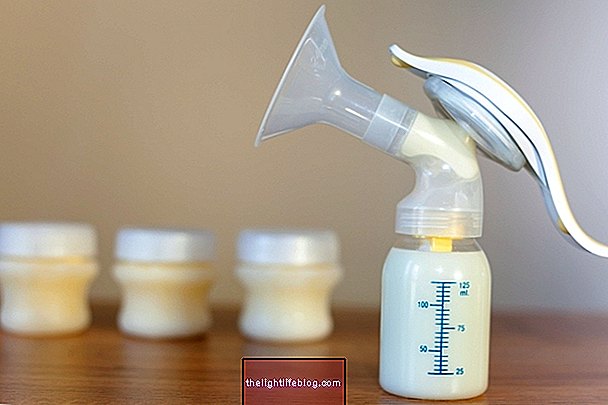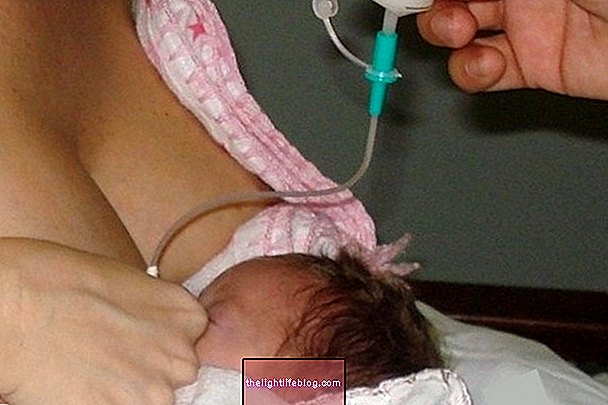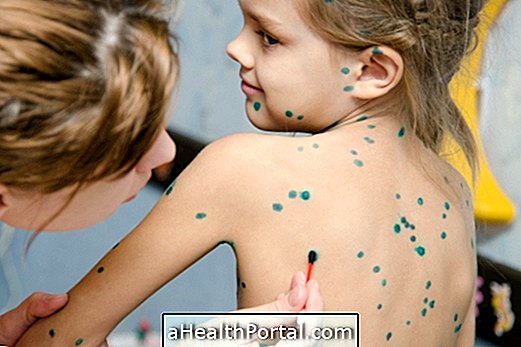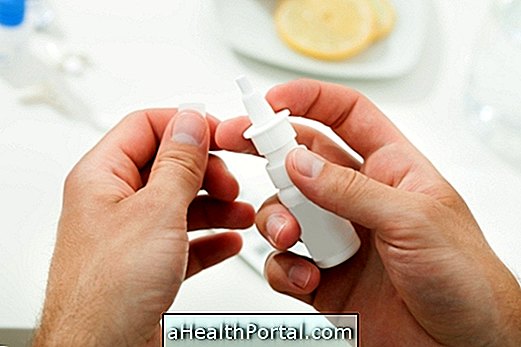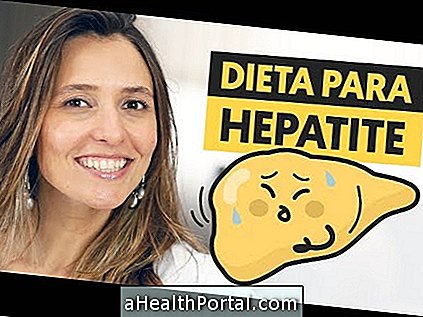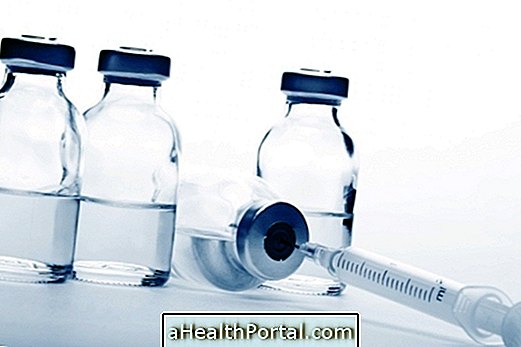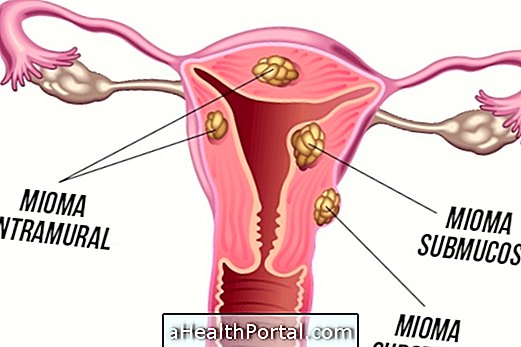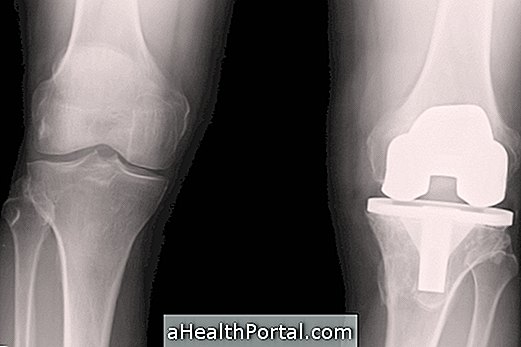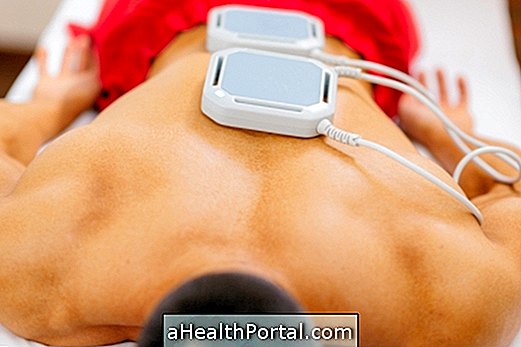Every healthy woman who is not taking medication incompatible with breastfeeding can donate breast milk. To do this, simply withdraw your milk at home and then contact the nearest human milk bank to make the donation.
The production of milk depends on the emptying of the breasts, so the more the woman breastfeeds or expresses milk, the more milk she produces, being enough for her baby and for the donation. The donated milk is used in hospitals to feed babies admitted to neonatal units and who cannot be breastfed by the mother herself.
Any amount of donated breast milk is important. A jar of donated breast milk can feed up to 10 babies a day. Depending on the weight of the baby, only 1 mL of milk is sufficient at each time it is fed.

Step by step to donate breast milk
The woman who will donate breast milk must respect some important recommendations:
How to prepare the donation jar
It is not just any bottle that can be used to store breast milk. Only bottles supplied by the human milk bank or glass bottles with a plastic lid, such as soluble coffee, are accepted, provided they are properly sanitized at home. Cleaning and sterilizing bottles at home is relatively easy. It should be done as follows:
- Wash the glass jar with a wide mouth and plastic lid, as for soluble coffee, removing the label and the paper from inside the lid;
- Place the bottle and the lid in a pan, covering them with water;
- Boil them for 15 minutes, counting the time from the beginning of the boil;
- Drain them, with the opening facing downwards, on a clean cloth, until dry;
- Close the bottle without touching the inside of the lid with your hands;
The ideal is to leave several bottles prepared. They can be stored in a container with a lid.
Personal hygiene
Women's hygiene is also very important to avoid contamination of the milk to be donated, and for this reason you should:
- Wash the breasts only with water and dry them with a clean towel;
- Wash your hands up to the elbow, with soap and water, drying with a clean towel;
- Use a cap or scarf to cover your hair;
- Place a cloth diaper or mask over your nose and mouth.

Steps to express breast milk manually
To start expressing the milk, the woman must be in a calm and peaceful place, which favors the expressing of the milk. Thinking about your baby can help the milk to escape because of the stimulation of oxytocin, the hormone responsible for the release of breast milk. To start expressing breast milk, a woman must:
- Choose a clean and quiet place;
- Sit on a comfortable chair or sofa;
- Avoid storing while expressing milk;
- Massage the breasts with your fingertips, making circular movements towards the dark part that is the areola, for the body.
- Hold the breast properly, placing the thumb above the line where the areola ends and the index and middle fingers below the areola;
- Firm your fingers and push back towards the body;
- Press your thumb against the other fingers until the milk comes out;
- Disregard the first jets of milk or drops;
- Remove the milk from the breast by placing the bottle under the areola. After collecting, close the bottle tightly.
- Perform the withdrawal of milk, until the breast is completely empty and more malleable;
- Put a label with your name and the date of the withdrawal. After taking it to the freezer or freezer, for a maximum of 10 days, which is when the milk must be taken to the human milk bank.
- If it is difficult to express your milk, seek support from a human milk bank or Basic Health Unit closest to you.
The woman can fill the bottle up to 2 fingers from its edge and it is also possible to use the same bottle for different collections. To do this, she must remove the milk in a properly sterilized glass cup, according to the guidelines for cleaning the bottle, and then just add it to the milk bottle that is already frozen.
If you want to remove the milk with the breast pump, see here the step by step
Where to store breast milk
The conditioned milk must be kept in the freezer or refrigerator freezer for a maximum of 10 days.Even when adding milk from different days, the day of the first milk removed must be taken into account. In that time, contact the nearest human milk bank or find out how to transport it or if it is possible that it will be collected at home.
When is the right time to withdraw milk for donation
The woman can withdraw her milk for donation from the birth of her baby, right after each feeding. For this, the baby should be allowed to breastfeed as much as she wishes, and only when the baby is already satisfied can the woman withdraw her remaining milk from her breast for donation.
Breastfeeding is recommended for 2 years or more, and up to 6 months, only breast milk should be offered. After 6 months breastfeeding can continue, but with the introduction of healthy complementary foods to the baby's diet.
From 1 year of age, the baby should breastfeed at least 2 times a day, in the morning and at night, before going to sleep. Thus, if the woman wishes, she can withdraw the milk for donation in the middle or at the end of the afternoon, which relieves the discomfort of having full and heavy breasts.
See what to do to increase breast milk production
Benefits of donating breast milk
A breastfeeding woman is less likely to develop breast cancer and in addition to feeding her baby can help save the lives of other babies, because 1 liter of breast milk can feed more than 10 hospitalized babies, since the amount that each baby need varies according to your weight and age.
In addition, your own milk production increases, because the stimulus that occurs in the body when expressing the milk until the end, promotes the production of more milk, which ensures that your own child will not be lacking.
How to start donating breast milk
When the woman decides to donate her breast milk, she should contact the human milk bank nearest to her home or call Disque Saúde 136 because it is necessary to register first.
After scheduling the visit of the milk bank team, the technicians personally explain how to perform the collection correctly so that there is no contamination, and check the prenatal exams that confirm the woman's health, in relation to the diseases that prevent the donation of milk . The milk bank also offers a mask, cap and glass bottles to make the donation hygienically.
In the human milk bank, breast milk is tested to see if there has been any contamination, and after being approved for use it can be distributed in hospitals where it will be used.
Check the locations of the nearest human milk bank to deliver your donation or call Disque Saúde 136.
When you cannot donate breast milk
The woman should not breastfeed her baby, or withdraw breast milk in the following cases:
- If you are sick, according to medical prescription;
- If you are taking any medication. Find out which are the banned breastfeeding remedies
- If you are infected with viruses of serious diseases such as HIV;
- If you have consumed drugs or alcoholic beverages;
- After having an episode of vomiting or diarrhea, because you may be sick, and you need medical help.
In these situations the woman should not make the donation of milk so as not to harm the health of the baby who will receive the inappropriate milk.
Was this information helpful?
Yes No
Your opinion is important! Write here how we can improve our text:
Any questions? Click here to be answered.
Email in which you want to receive a reply:
Check the confirmation email we sent you.
Your name:
Reason for visit:
--- Choose your reason --- DiseaseLive betterHelp another personGain knowledge
Are you a health professional?
NoMedicalPharmaceuticalsNurseNutritionistBiomedicalPhysiotherapistBeauticianOther
Bibliography
- RBLH BRASIL. Donation of human milk. Available in: . Accessed on 13 May 2019
